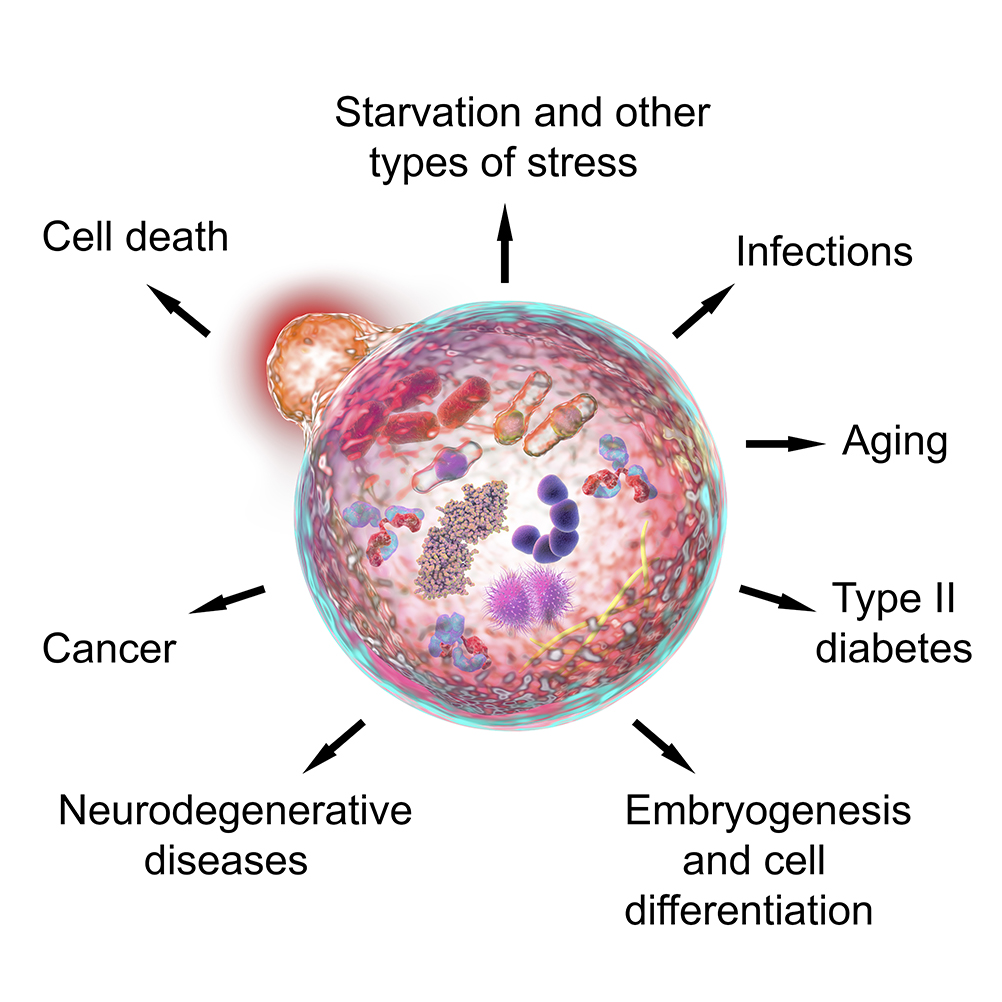
Stellenbosch University’s technology transfer team, Innovus, raised a total investment of R26 million for Stellenbosch University projects and spinout companies. The goal of these spinout companies is to conduct innovative research to address challenges such as, for example, those associated with monitoring autophagy. The fund aims to commercialise university technology as a new asset class that is gaining tremendous traction around the world. Phagoflux™ is one such spinout company. The creation of these companies furthermore demonstrates the social impact of a research-intensive university such as Stellenbosch University. When scientific advances become commercially available their beneficial impact on society is also amplified significantly.
Developing autophagy monitoring technology
The research conducted by the Phagoflux team – Prof Ben Loos (CEO of Phagoflux, Department of Physiological Sciences), Prof Willem Perold (Department of Electrical and Electronic Engineering), Prof Jan-Hendrik Hofmeyr (Department of Biochemistry), Dr Andre du Toit (Department of Physiological Sciences) and Prof Pieter Fourie (Innovation for Life) – focuses on developing technology that can quantify and monitor the autophagy process in cells. This has particular relevance in diseases where autophagy is dysfunctional, such as neurodegeneration, but also diabetes and cancer. In our previous article, we explained the phenomenon of autophagy which in layman’s terms refer to the self-cleaning activity of bodily cells. This means that when cells cannot undergo autophagy, toxic material builds up and the cells eventually die. This is evident in diseases such as Alzheimer’s disease and plays also a major role in unsuccessful ageing.
Going forward
Phagoflux has developed a unique solution to measure this self-cleaning process rapidly, accurately and cost effectively, and is ultimately going to make this unique metric for cellular health publicly available. Monitoring autophagy and its activity with a Phagoflux device will, for the first time, make it possible to accurately quantify the effects of lifestyle choices that are known to change autophagy activity, such as exercise, fasting and diet – most notably a diet low in carbohydrates and high in fatty acids or a keto-diet. This is critical to monitor the risk factors that are associated with aging, but also obesity, insulin resistance and diabetes and even medications, such as those prescribed for neurodegeneration and cancer.

Phagoflux is currently improving its prototype device to measure autophagy and aims to have a pre-production prototype ready by October. It will ultimately be made publicly available and deployed in the research and pharmaceutical industry, where the requirements to advance drug screening and research are highest. In the long term, the technology will be made suitable for the diagnostics and wellness arena.
Photograph:
Front row (from left to right): Prof Resia Pretorius (Physiological Sciences, BioCODE founding member), Prof Stan du Plessis US Chief Operating Officer), Prof Willie Perold (Professor Emeritus, E&E Engineering, BioCODE founding member, Phagoflux founding member), Joubert de Wet (InnovUS, Technology Transfer Manager ), Prof Anna-Mart Engelbrecht (Physiological Sciences, BioCODE founding member), Anita Nel (CEO, US Enterprises (Pty) Ltd.
Back (from left to right) Dr Deon Neveling (Biotikum founding member), Dominique Nicholas (Immobazyme founding member), Prof Ben Loos (Physiological Sciences, Phagoflux founding member)



